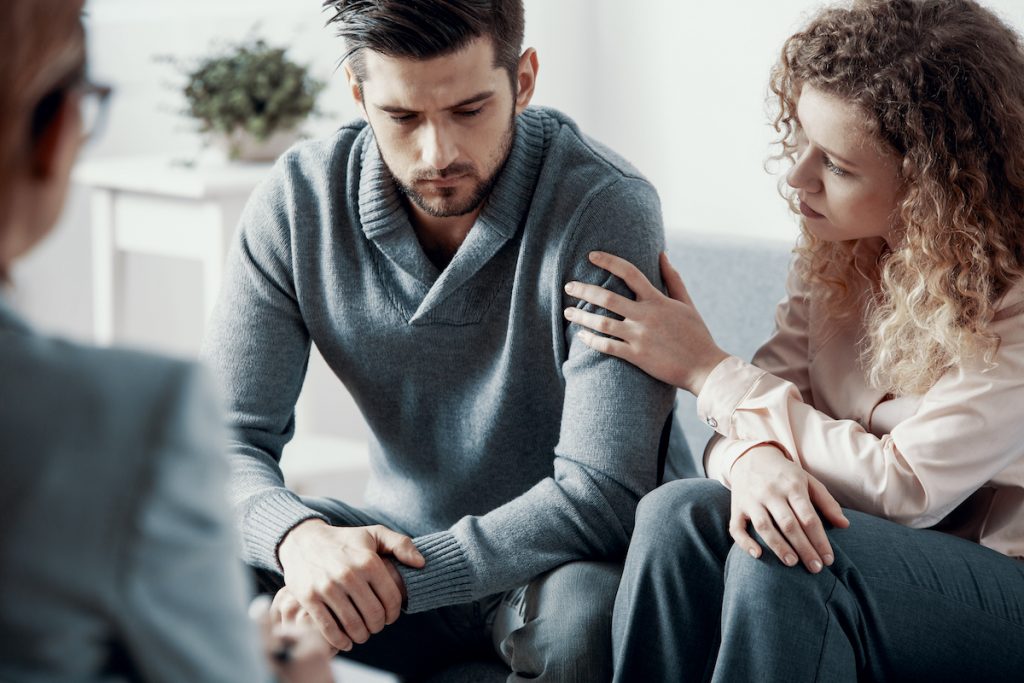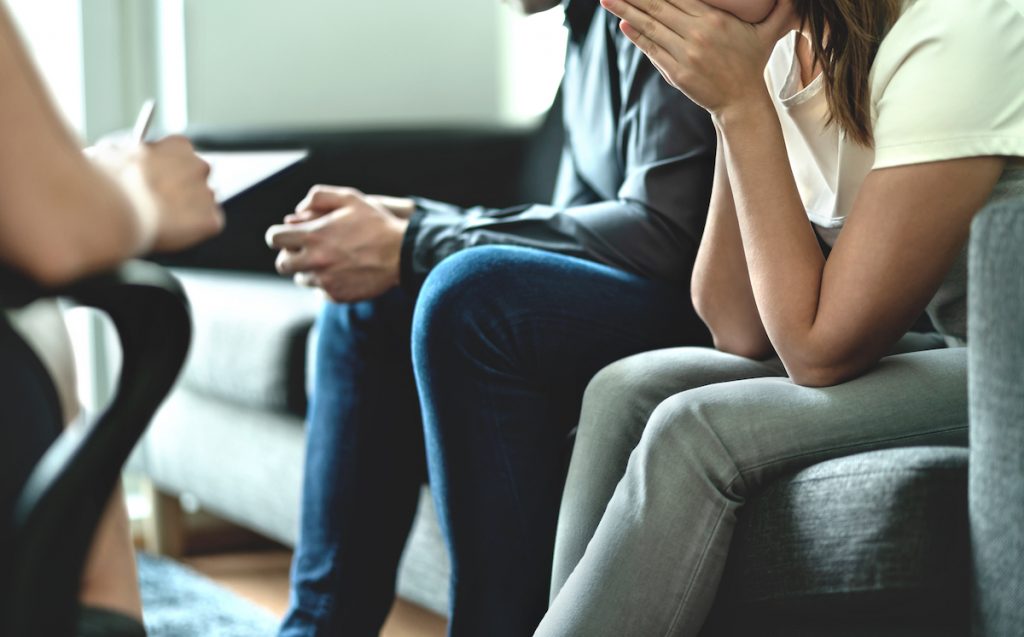Everything You Need to Know About Couples Therapy
Whether you have the same argument over and over again, facing the silent treatment or cutting your partner from the house, there are many reasons to ask for help.

Some folks think that if you’re going to couple’s therapy, it means that something is wrong with you. In fact, it’s the opposite — this form of therapy can make your relationship stronger than ever and give you the right tools to communicate better. Whether you’re having the same argument over and over again, dealing with the silent treatment, or kicking your partner out of the house, there are lots of reasons to seek help.
Even if you and your partner get along well and rarely fight, relationship counseling can help people of all backgrounds move beyond the conflicts that daily life and stress can cause. Here’s everything you need to know about it to get the ball rolling.
What is couples therapy?
It’s a form of psychotherapy that helps people work through issues in their romantic relationships. A therapist acts as a third party to help improve conflicts, communication, and overall interactions. Although there’s generally a problem that’s a catalyst for couples going to therapy, it can be used at any stage of the relationship to improve connection. There is also pre-marital counseling, which is typically used to prep couples who are entering a long-term commitment. Typically, issues like parenting choices, finances, and values are discussed.

When to seek couples therapy
Rather than seeking this service out when you’re on the brink of separation or divorce, try to start heading to therapy as soon as problems start interfering with daily life. The key is seeking before you’re in a real crisis, but we all have busy lives, so in the meanwhile, you can keep an eye on some signs. Problems like manifest as:
- More than one unsolvable disagreement
- You find it tough to express feelings to each other
- You have gone through infidelity/abuse/addiction
- A desire to have your relationship to be stronger than it currently is

How to find a relationship therapist
There are lots of professionals in this field, so instead of heading into the black hole that is Google, consider asking people you know, or trusted medical professionals, for references. If you feel anxious about visiting an in-person therapist or living in a rural area, you may want to consider online relationship counseling. This is a great, accessible option for people who feel that face-to-face therapy is challenging for a range of reasons.
Also, you might not meet a therapist you love the first time. It’s kind of like dating — you may have to spend a few weeks or even months shopping around before you find the right chemistry and vibe.

What your first session might be like
The first few times you see a couples therapist, you might discuss your history and the problems between you and your partner. Go in with an open mind, as your counselor may ask you questions regarding your parents, your childhood, and your past relationships. Although different therapists use different styles, the most common one is emotionally focused therapy, which is based on attachment theory.

How to make your therapy sessions more effective
- Be as honest as possible, Lying will only be a waste of your money. Remember, a therapist’s office is not a place for judgment, it’s a place of healing, but it needs to come from your own accountability.
- Get ready to be uncomfortable. No one walks into a therapy session feeling super confident. In the process of discovering truths about yourself and your partner, discomfort may occur. Growth is never within our comfort zone, but it is necessary.
- Listen. It might be tempting to be as defensive as possible and have an arsenal of reasons why your partner is wrong and you’re right, but listening to what your partner has to say is an important part of the process.
- Put in the work. Beyond your in-person sessions, your therapist may ask you to complete homework, try new communication methods, and do other activities in between appointments. Your problems won’t magically disappear — you need to do the work first.

What if my partner won’t go to therapy?
This is a real scenario for a lot of people who are therapy-averse. You can’t force your partner into therapy, but you can go to a regular therapist and tackle issues that you’re facing as a person. In turn, this may give you better tools within your relationship.
Ultimately, it’s less dramatic than it sounds and is a great way to start fresh, especially if you want to stay with your partner rather than break up. While there’s no guarantee it will keep you together, couple’s therapy can start the process of healing wounds and restoring a meaningful connection.


This secret thing will save you on the plane tickets

The CDC indicates that you do not have to do that once vaccinated
